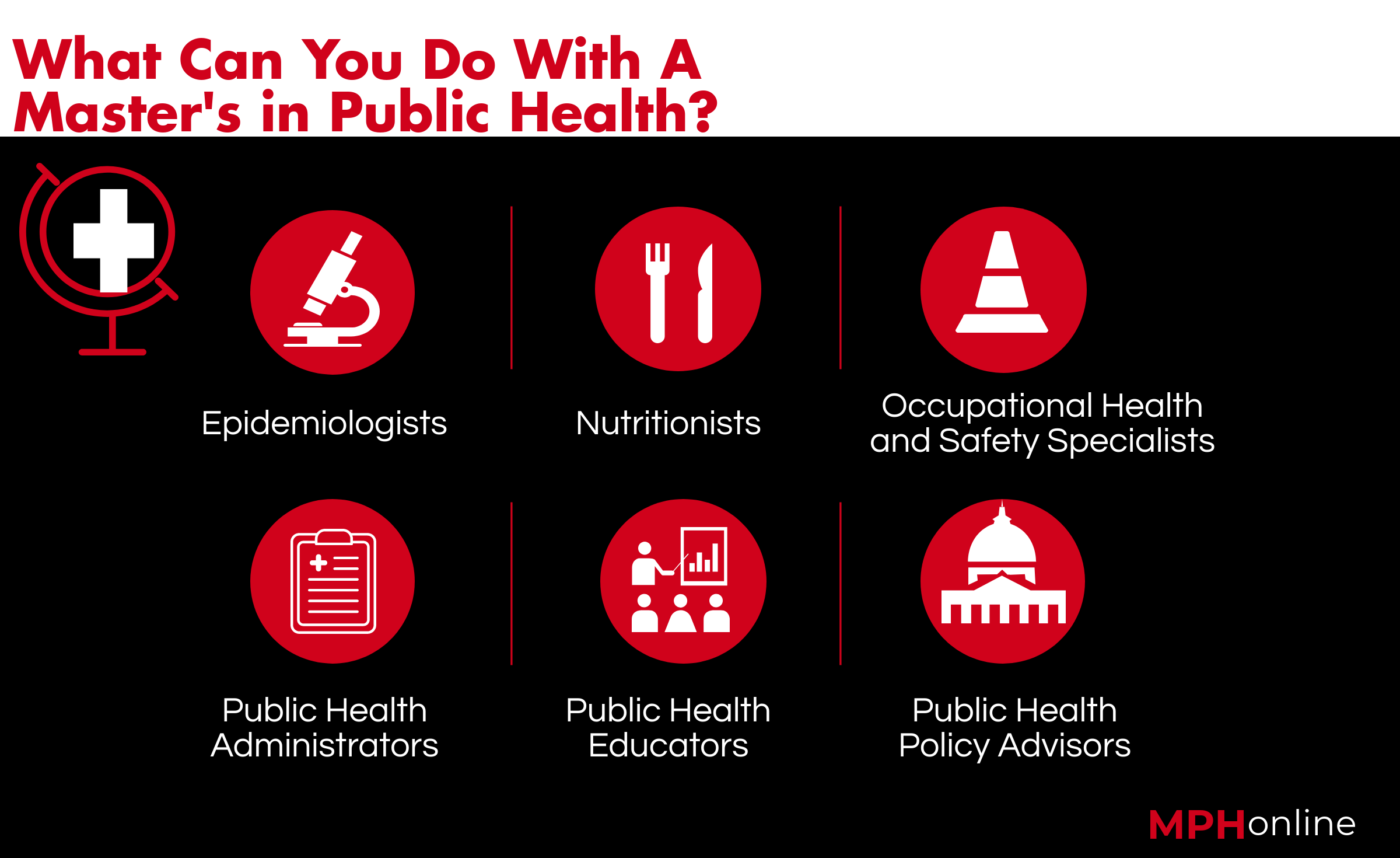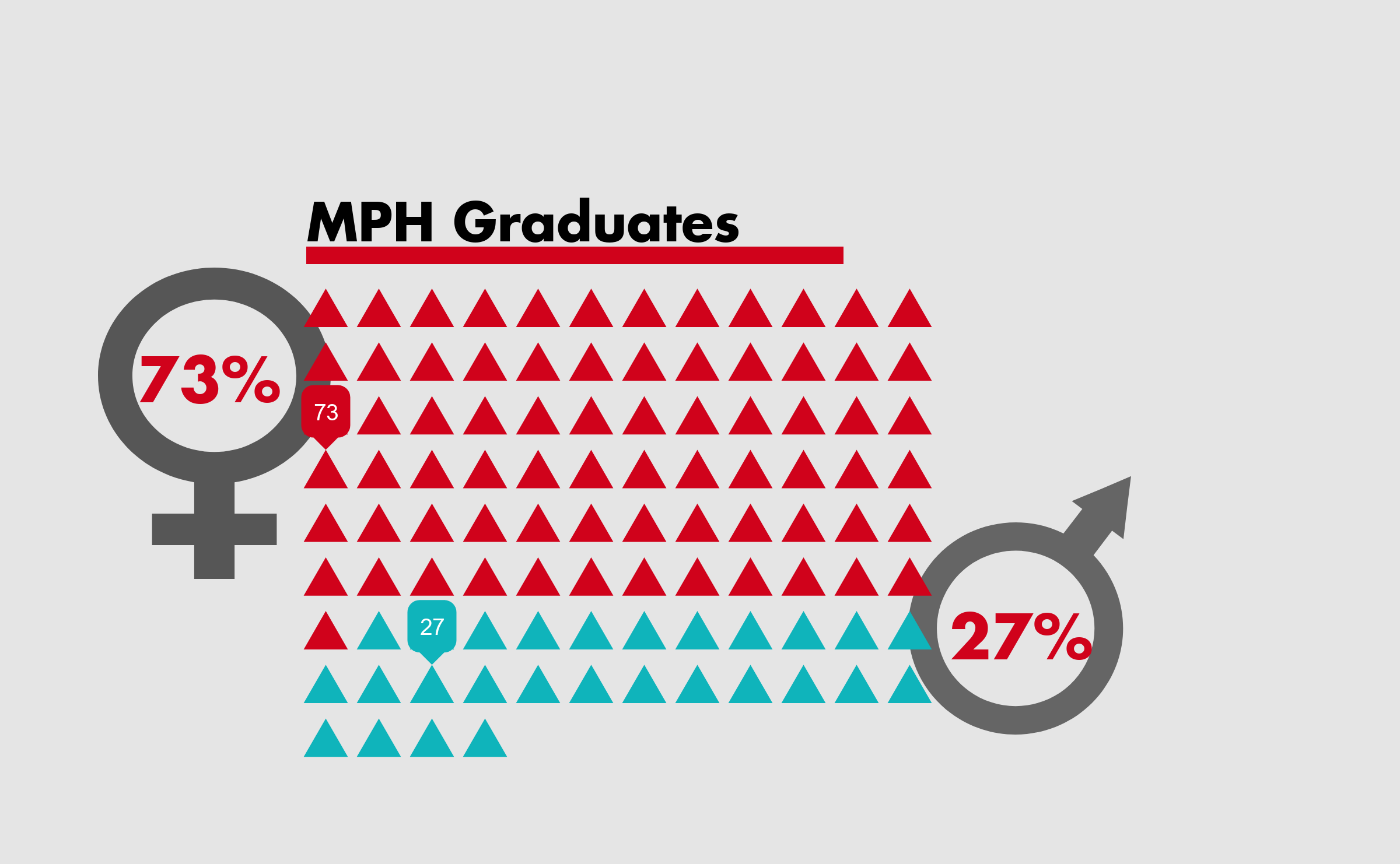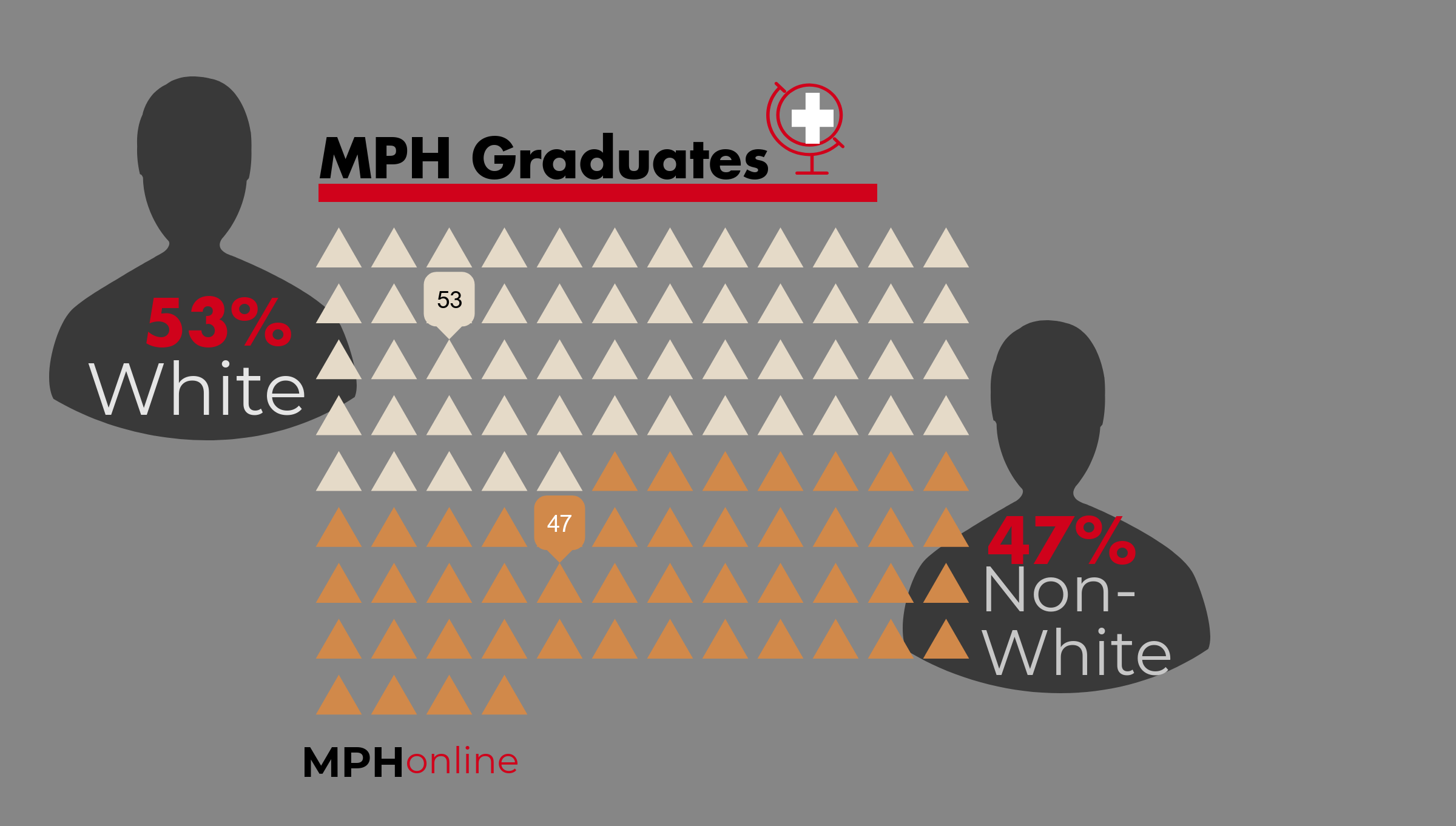The decision to pursue public health careers offers a chance to make a difference in the world. The challenge is finding a degree program that aligns with your interests and your goals for specialized degrees. By focusing on in-demand specializations within the public health field, you can clarify the options that work with your personal plans.
Most In-Demand Public Health Specializations
When it comes to in-demand public health careers, a health and safety engineer is a good option for your goals. A health and safety engineer focuses on designing systems and procedures to protect against illnesses, diseases, and injuries in a building. The degree recognizes the risks of injuries or illnesses during and after construction. It combines your training as an engineer with knowledge about health to enhance and improve the safety of a project. A health and safety engineer is a position with high demand from employers due to the combination of skills that allow companies to comply with state, local, and federal standards for safety.

If you have an interest in public health careers that focus on large populations, then a focus on epidemiology may assist with your goals. Epidemiology public health careers focus on research, policy, and education to reduce the risks of illness in large populations. The demand for epidemiologists applies to government positions, careers in research, and private organizations with a focus on medicine and health. You may have opportunities within a variety of industries with a focus on improving health outcomes within a population or group.
Public health degree careers with high demand in the medical field are healthcare administrators. The public health job description for a healthcare administrator is to focus on quality and support within a medical facility. As a healthcare administrator, you focus on improving efficiency while maintaining a high level of quality within the facility. By offering support to the medical staff and taking measures to improve quality of care, your role assists patients in a hospital or similar facility. This public health career has a high demand because it requires organizational skills and fundamental knowledge of healthcare and the medical industry.
Environmental scientists are also in high demand among employers with a focus on public health. An environmental scientist is a specialized area of public health that focuses on the impact of pollution and chemicals on the environment. The career path focuses on collecting data about local environments and identifying risk factors before reporting the details to appropriate authorities, government offices, or an employer. In some cases, scientists also strive to find solutions to clean up and remove pollution before it causes harmful effects to the environment and to human health. It is a vital role in public health because it provides the data needed to make positive changes.
Public Health Careers
The Complete Job Description for Sanitarians
The Complete Job Description of a Biostatistician
The Complete Job Description of a Mental Health Worker
The Complete Public Health Job Description
What Can I Do With an Online Bachelor’s in Public Health?
What Can I Do With an Online DrPH?
What is Industrial Hygiene?
What is a Public Health Nutritionist?
Where Do Public Health Professionals Work?
When you are looking into the public health job description, you may notice that you have a variety of fields and options for your career. You can work in different roles based on the setting or organization you choose to focus on for your career.
There are many different settings for high demand public health professionals. You can work in public health organizations that specialize in specific areas of public health. For example, you can work in a private research firm to identify risks to specific populations or demographics in a local area. You can also work in the private sector for a pharmaceutical company with a focus on limiting the risks of medications or addressing problems with the removal of waste chemicals. In the private sector, you may focus on ensuring that companies comply with appropriate safety precautions.
If you prefer to avoid working in the private sector, you may also have opportunities for your career in government positions. You can work with the CDC or other government agencies to address problems on a nation-wide or state-wide basis. You can even work with your local government to resolve existing concerns or to prevent risks to local populations when new companies or industries move to the area. Your role in government depends on your specialized skills; however, you can find opportunities for work as an epidemiologist within federal and state government organizations.
Hospitals also offer opportunities for individuals with a public health degree. Healthcare administrators and related support staff within a hospital often need a degree in public health to develop the leadership skills and the organizational skills they need for their role. You also need a basic understanding of health and medicine as it applies to populations and groups to handle the role of a healthcare administrator. By keeping a medical facility organized and efficient, you take a direct role in ensuring your patients receive quality care.
Taking on a role in social work for a medical facility is another option for your career. Medical facilities need professionals who are able to recognize potential concerns with patients and address the underlying problems. Social workers in a medical facility play a critical role for the health and safety of patients.
If you prefer to avoid working in the medical field or with a government agency, a public health degree also offers opportunities to work in a university. Colleges and universities need teachers and educators within the field of public health. You can work as a professor in a specialized field or a research position. You can also take on a role within the university’s staff to ensure the safety and health of students. Colleges and universities may offer positions for staff members with an understanding of public health and safety to help organize and maintain the safety of the campus.
A public health job description is diverse due to the number of potential applications of the degree. You can work in a variety of fields and industries when you have a master’s in public health. If you have a specialized skill, you can enhance your opportunities for your career by focusing on specific industries or positions.
Top 3 Public Health Travel Jobs
Top 10 International Public Health Careers

How Much Do Professionals in Public Health Make?
A masters in public health salary gives you a clear idea of what to expect when you move into the workforce. Public health career salaries depend on your position and job responsibilities. You will also notice a difference in your salary based on your location and the organization. While the details may vary based on your job, the average public health salary is reasonable for most careers and opportunities.
If you decide to focus on epidemiology, then you can expect a high salary. The average epidemiologist salary is around $95,000 per year. You can expect some variation in your salary based on your experience and industry. The average starting salary for an epidemiologist is around $81,000 per year. As you gain experience, you can expect your salary to increase over time. In some cases, the salary expectations for an epidemiologist increase to roughly $113,000 per year.
Health and safety engineers have a wide array of salary expectations based on the industry and the level of experience. The Bureau of Labor Statistics suggests that the salary range for a health and safety engineer is between $53,000 and $143,000 per year. The average income when you work in health and safety engineering is around $89,000 per year, which is similar to other engineering professions. You can expect to earn more in a private firm or organization when compared to non-profit positions. You can also expect to earn more as you gain experience in your career.
Environmental scientists can expect a reasonable income for their career. While the average entry-level position for an environmental scientist or environmental specialist in public health is around $42,500 per year, the average income for environmental scientists overall is around $71,000 per year. The highest earners in environmental science earn around $125,000 per year. The exact salary expectations may vary based on location and industry, so you will want to evaluate income levels in a specific area to determine competitive rates.
Healthcare administration is a career path with a slightly lower average salary when compared to other positions in public health. The average salary for a healthcare administrator when starting their career is around $39,000 per year. As you gain experience, you can expect your salary to increase within your job. The average salary for a healthcare administrator with experience is around $65,000 per year. The highest earners within healthcare administration may earn as much as $103,000 per year. Expect some variation based on your location, since busier hospitals and facilities may offer higher wages or additional benefits.
Salary expectations in public health depend on your position and role in an organization. You can expect a wide array of salary options, particularly if you decide to work in the private sector. Use the average income for the position as an idea of a fair wage when you are considering an offer after graduating with your degree.
Highest Paying Jobs in Public Health
How Much Can I Make With An Online MPH?
How Much Can I Make With an Online Bachelor’s of Public Health?
Is a Bachelor’s in Public Health Worth It?
Is an MPH Worth It?
Public Health Salary
How is the Job Market in Public Health?
Public health degree jobs offer a variety of positions within different industries. By evaluating the outlook for jobs with a masters in public health, you can determine the potential to obtain a job shortly after you graduate.
The public health job outlook is positive in most fields. While specific job outlooks depend on the role you expect to play in an organization or business, most roles in public health show a positive trend. A public health project manager or a health services manager working in healthcare administration or related fields will see a positive trend in their job opportunities. The Bureau of Labor Statistics points out that the job outlook for health services managers or public health managers focusing on the medical field is around 20%. That rate of growth is higher than the national average for all industries and it is similar to other jobs within the medical profession. Since there is a shortage of professionals in medical positions, the opportunities for public health professionals within hospitals and medical facilities is expected to grow.
The growing interest in environmental safety and health also impacts career opportunities. Environmental scientist and specialist positions are expected to grow at a rate of 11%. The rate is higher than average, so you can expect a high demand for professionals in your field.
If you want to work in epidemiology, you can expect a reasonable level of interest from employers. While the career is lucrative, job growth is around 9%, which is similar to the national average for all careers. The average job growth means that you will have opportunities and employers are looking for professionals with your specialized training; however, the demand is not necessarily high in all areas of the country. The demand is highest in large urban areas, so you may want to focus on career opportunities around larger population centers.
Biostatistics is a growing field that is gaining attention for the specialized skills associated with the career. Expectations for job growth for biostatisticians is around 34%. The rate is far higher than most careers and industries, so it does offer a greater array of options for your future career. The degree allows you to work in a variety of industries and it is not limited to public health firms. You can also work in government roles or the private sector. That flexibility leads to greater opportunities within the career path.
Public health is a growing area that offers a variety of opportunities for your career. While the growth of specific jobs depends on the role and the demand for professionals in the field, there is a high demand for professionals with a masters in public health in many positions and companies. It offers a chance to work in several firms, organizations, or companies.
3 Highest-Paying Career Options for Environmental Health Majors
Epidemiologist Salary and Job Prospects
Public Health Online Resource Guide
What Can You Do With an MPH?

How Do You Get a Job in Public Health?
When you are looking into how to get a job in public health, you will notice that there are critical steps you need to take for your career. A degree is only part of the process and gives you the qualifications for more advanced roles in your field; however, you will still need to make connections to get started on your long-term goals.
The first step in obtaining a job in public health is through your education. You need to start with an undergraduate degree in public health or a related field. For example, you can study engineering or science if you plan to work as an environmental scientist or a health and safety engineer. Use your long-term plans for your career as the foundation for your degree and training.
During your undergraduate program, you want to consider public health internships. If you go through CDC internships or take on an internship with a public health firm, you will have the opportunity to build connections that are critical for your career goals. Even if you do not plan to work with the CDC, an internship with the government organization gives you valuable experience that builds up your resume. Public health internships from a firm or organization that takes on the work you want to focus on in your career will give you a boost to get started.
In many cases, you will need a master’s degree in public health for your career goals. Many companies require a master’s degree to start working in a public health position as a scientist, engineer, administrator, or epidemiologist. While you can work as an intern or take on a position at a lower level under the supervision of public health professionals with your undergraduate degree, you will want a higher level of education to move into a position that fits your long-term goals.
While internships are required for some companies, you also want to network while you are in school. Build up connections with your peers and get involved in programs available through your school. Building connections and positive relationships with your peers will give you the option to reach out to others in your field when they start working. While it may not directly benefit you when you and your peers are starting out in an entry-level position, it may help when you want to move into more advanced roles. In some cases, your peers may also inform you about new positions in companies where they work.
Connections with professionals in public health also help with your goals. An internship may assist with networking on a small scale, but you can also go to conferences and networking events to get involved with the public health industry. The advantage of a conference is that you can talk to a variety of professionals who may be in a position to give you an entry-level job or to help you advance in your career. Networking is a vital step in the process of getting hired or starting out in a job.
The final step of getting a job in public health is applying for positions. Use any internships or undergraduate work experience to build up your resume. Apply for positions and inform any of your connections in the firm, organization, or company about your application. Repeat the process in several companies or firms. Companies with an interest in your skills and training may call for an interview when they are hiring.
25 Public Health Scholarships
Are There Scholarships for Online MPH Programs?
Can I Get A CEPH Accredited MPH without the GRE?
Can International Students Get an MPH in the USA?
Public Health Internships
Public Health Scholarships
Top 2 Scholarships available to MPH Students in Maternal & Child Health
What Can I Do With an Online Bachelor’s in Public Health?
What is a Certification in Public Health?
What is a MPH Degree?
What is the Maternal Child Health MPH Job and Salary Outlook?
What is the difference between a DrPH and a PhD in Public Health?
Why Choose an On-Campus MPH Program?
All Resources:
10 Schools for Best MPH Fellowships 2018
25 Public Health Scholarships
Are There Scholarships for Online MPH Programs?
Can I Get A CEPH Accredited MPH without the GRE?
Can International Students Get an MPH in the USA?
Epidemiologist Salary and Job Prospects
Highest Paying Jobs in Public Health
How Much Can I Make With An Online MPH?
How Much Can I Make With an Online Bachelor’s of Public Health?
Is a Bachelor’s in Public Health Worth It?
Is an MPH Worth It?
Public Health Careers
Public Health Internships
Public Health Online Resource Guide
Public Health Salary
Public Health Scholarships
The Complete Job Description for Sanitarians
The Complete Job Description of a Biostatistician
The Complete Job Description of a Mental Health Worker
The Complete Public Health Job Description
Top 10 International Public Health Careers
Top 3 Public Health Travel Jobs
What Can I Do With an Online Bachelor’s in Public Health?
What Can I Do With an Online DrPH?
What is a MPH Degree?
What is the difference between a DrPH and a PhD in Public Health?
Why Choose an On-Campus MPH Program?